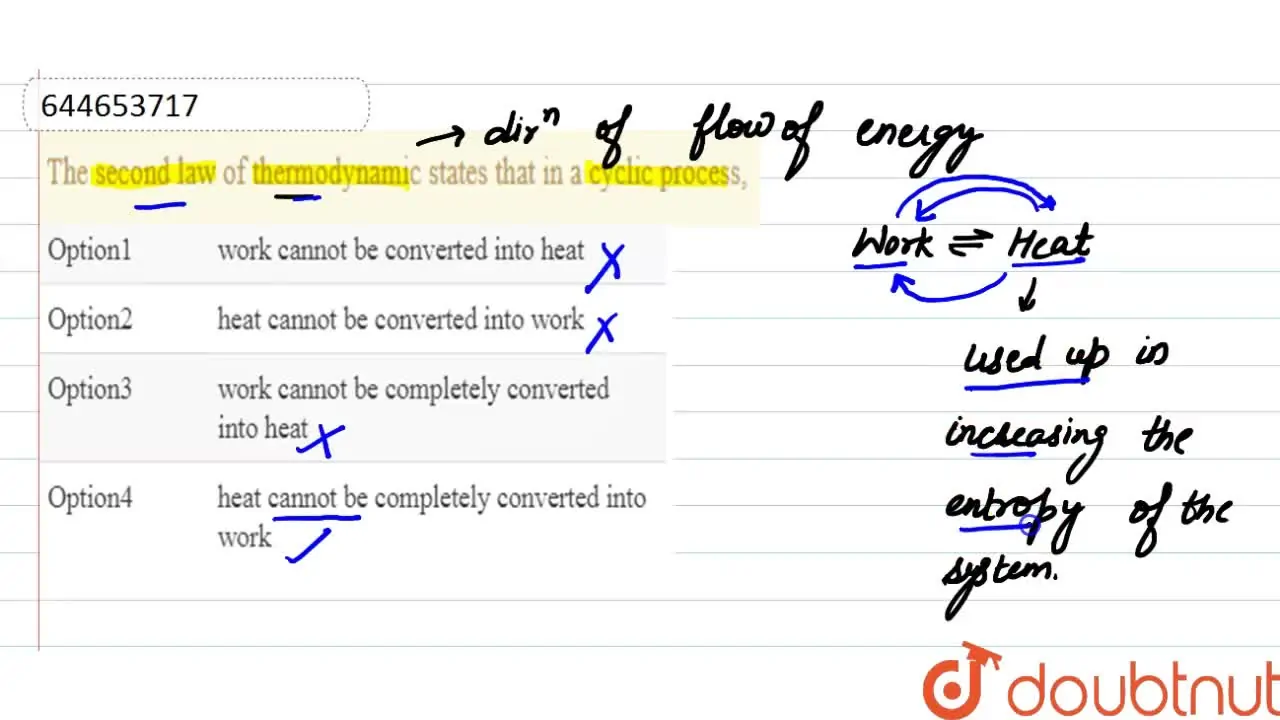The second law of thermodynamic states that in a cyclic process,
work cannot be converted into heat
heat cannot be converted into work
work cannot be completely converted into heat
heat cannot be completely converted into work
The correct Answer is:D
Step by step video & image solution for The second law of thermodynamic states that in a cyclic process, by Chemistry experts to help you in doubts & scoring excellent marks in Class 12 exams.
Related Playlists
Similar Questions
The second law of thermodynamics states that
View SolutionWhen an object cools down, heat is withdrawn from it. Does the entropy of the object decrease in this process? If yes, is it a violation of the second law of thermodynamics stated in terms of increase in entropy?
View SolutionAccording to second law of thermodynamics
View SolutionWhat is true for a cyclic process
View SolutionWhat is meant by a cyclic process ?
View SolutionAccording to the second law of thermodynamics, a process (reaction) is spontaneous, if during the process
View SolutionThe first law of thermodynamic is a special case of
View SolutionState the third law of thermodynamics.
View SolutionState the third law of thermodynamics.
View SolutionState the first law of thermodynamics.
View Solution


